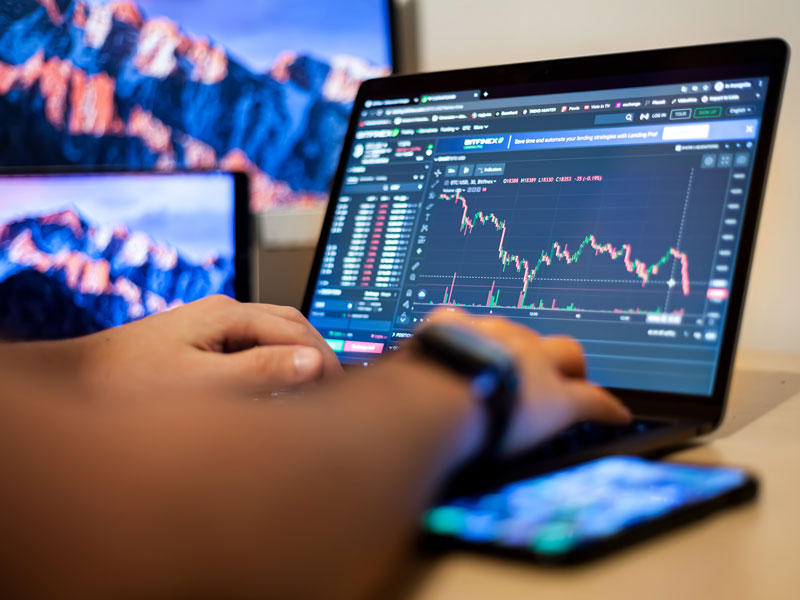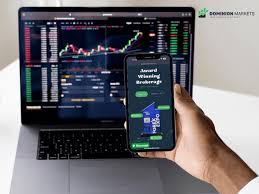
In the dynamic world of Forex trading, selecting the right broker is crucial for your success. With so many options available, it can be overwhelming to determine which broker aligns best with your trading style and goals. In this comprehensive guide, we will discuss the essential factors you should consider when searching for the best broker for forex trading Forex Broker Register, helping you make an informed decision that can enhance your trading experience.
Understanding Forex Brokers
Forex brokers serve as intermediaries between traders and the foreign exchange market. They provide a platform for buying and selling currency pairs, along with access to essential market tools and resources. The type of broker you choose can significantly influence your trading performance, as they vary in terms of fees, spreads, execution speeds, and available trading tools.
Types of Forex Brokers
Broadly, Forex brokers can be categorized into two main types: market makers and ECN (Electronic Communication Network) brokers.
Market Makers
Market makers set their own bid and ask prices, providing liquidity to their clients on the trading platform. While they offer fixed spreads, which can be advantageous for novice traders, it’s crucial to consider potential conflicts of interest, as market makers can profit from the losses of their clients.
ECN Brokers
On the other hand, ECN brokers route orders directly to the interbank market, providing a more transparent trading environment. They typically offer variable spreads and lower commissions but may require a higher initial investment. Traders benefit from real market prices, which can lead to better execution and less slippage.
Key Factors to Consider When Choosing a Forex Broker
1. Regulation
Regulatory oversight is one of the most critical aspects to evaluate when selecting a Forex broker. A regulated broker is required to adhere to strict guidelines, ensuring that they operate fairly and transparently. Look for brokers regulated by reputable authorities such as the FCA (Financial Conduct Authority) in the UK, ASIC (Australian Securities and Investments Commission) in Australia, or the NFA (National Futures Association) in the US.
2. Trading Costs
Trading costs can significantly impact your profitability. Make sure to evaluate the spreads, commissions, and any hidden fees associated with trading. Some brokers may advertise low spreads but charge high commissions, so it’s essential to calculate the total cost of trading before making your decision.

3. Trading Platform
The trading platform is the primary tool that traders use to execute trades. An intuitive, user-friendly platform can enhance your trading experience, while a complicated one can hinder your performance. Look for brokers that offer platforms with advanced charting tools, technical indicators, and mobile trading options to accommodate your trading style.
4. Leverage and Margin Requirements
Leverage allows traders to control larger positions with a smaller amount of capital. While higher leverage can amplify your profits, it also increases your risk. Understand the leverage offered by the broker and ensure it aligns with your risk tolerance and trading strategy. Additionally, be aware of margin requirements to avoid margin calls.
5. Customer Support
Reliable customer support is crucial, especially for new traders who may need assistance. Look for brokers that offer multiple channels of support, such as live chat, email, and phone support. Check for the availability of support in your preferred language and assess their response times.
6. Currency Pairs Offered
Different brokers offer varying selections of currency pairs. Ensure that the broker you choose provides access to the currency pairs you wish to trade, whether they are major pairs, minors or exotic pairs. A broader selection allows you more flexibility in your trading strategy.
7. Tools and Educational Resources
Consider brokers that provide valuable trading tools and educational resources. These may include market analysis, trading signals, webinars, and articles to help you enhance your trading knowledge and skills. A broker that invests in your development can be beneficial in the long run.
How to Start Trading with a Forex Broker
Once you’ve selected a Forex broker that meets your needs, the process to start trading is relatively straightforward:
- Open a trading account by providing the necessary identification and financial information.
- Verify your account, which may involve submitting documents for regulatory compliance.
- Fund your account using your preferred payment method, ensuring you understand any deposit fees.
- Download the trading platform or use the broker’s web-based interface.
- Start trading! Consider using a demo account initially to practice your skills without risking real money.
Conclusion
In conclusion, finding the best broker for Forex trading requires careful consideration of various factors such as regulation, trading costs, platform usability, and customer support. Take your time researching and comparing different brokers, and don’t hesitate to reach out to their support teams with any questions you may have. By choosing the right broker, you’ll set the foundation for a successful and rewarding trading journey.
